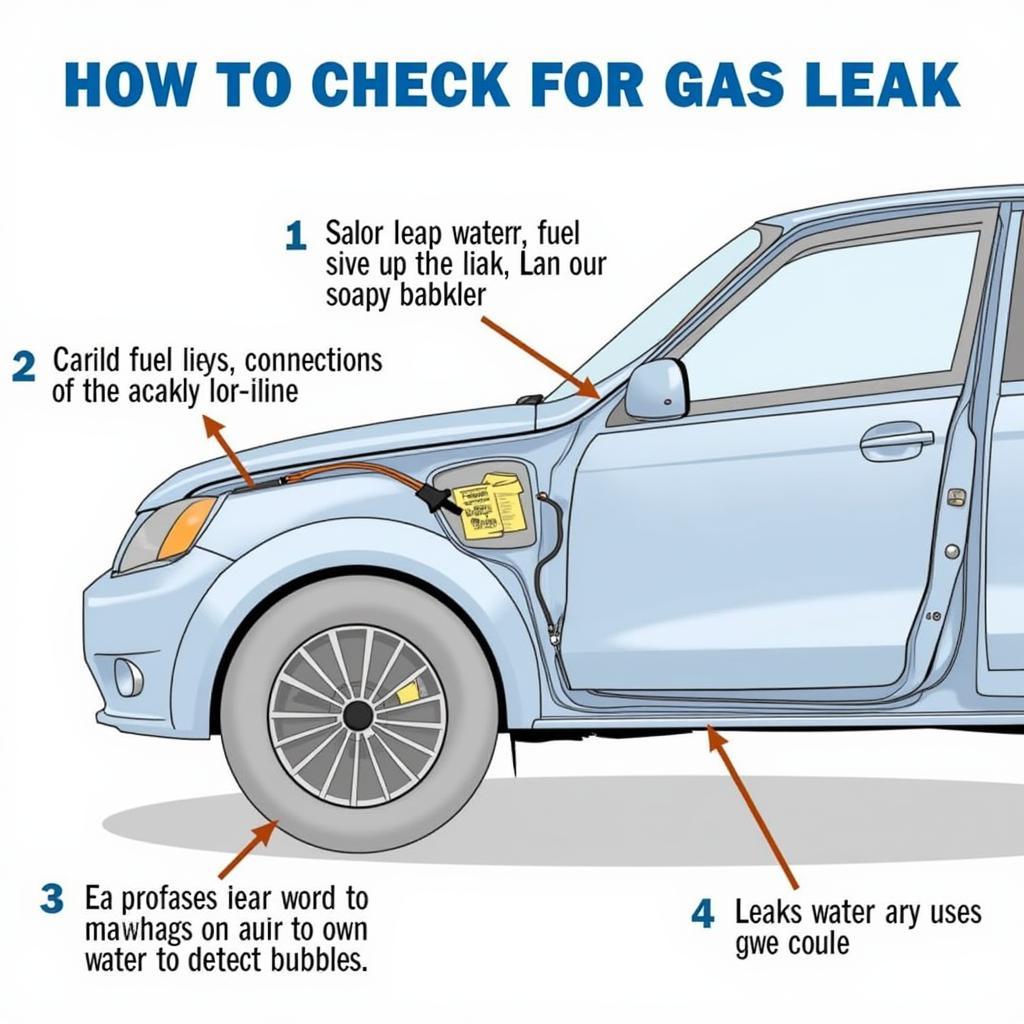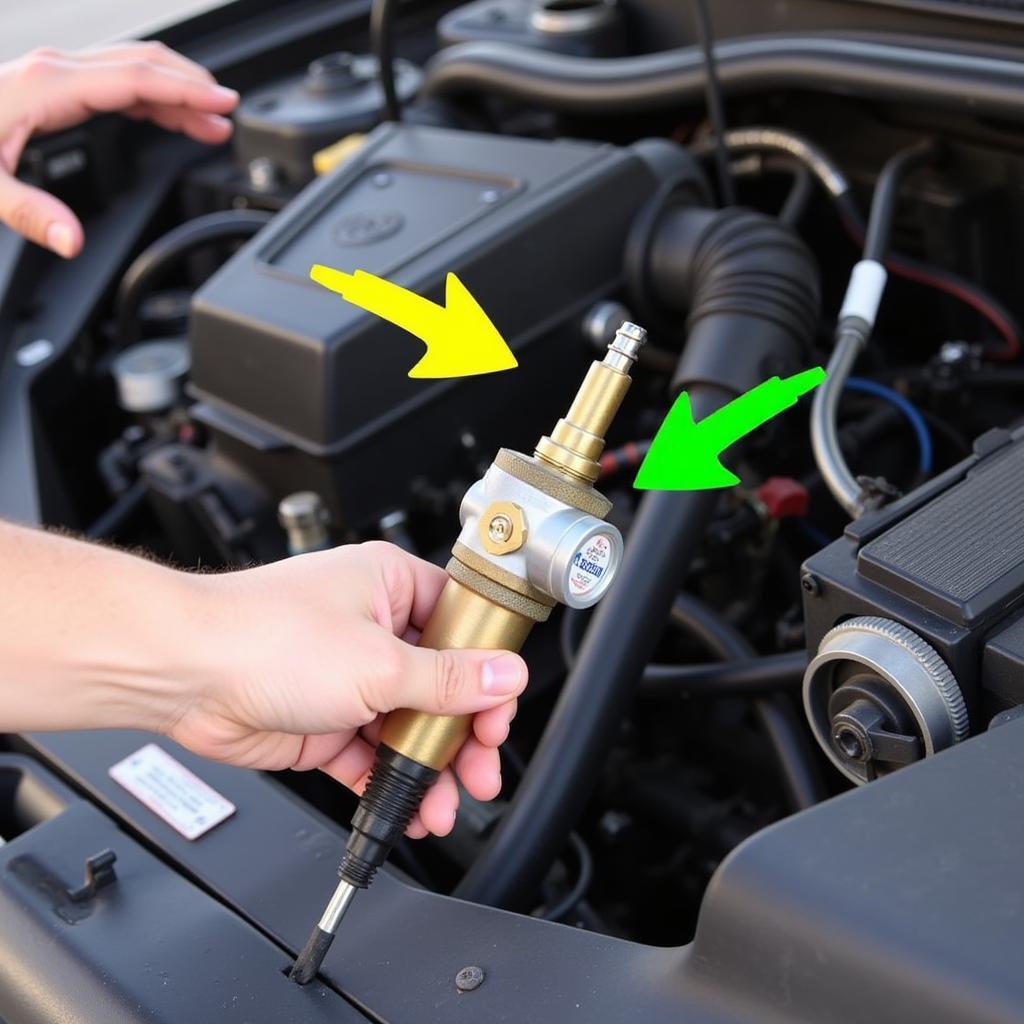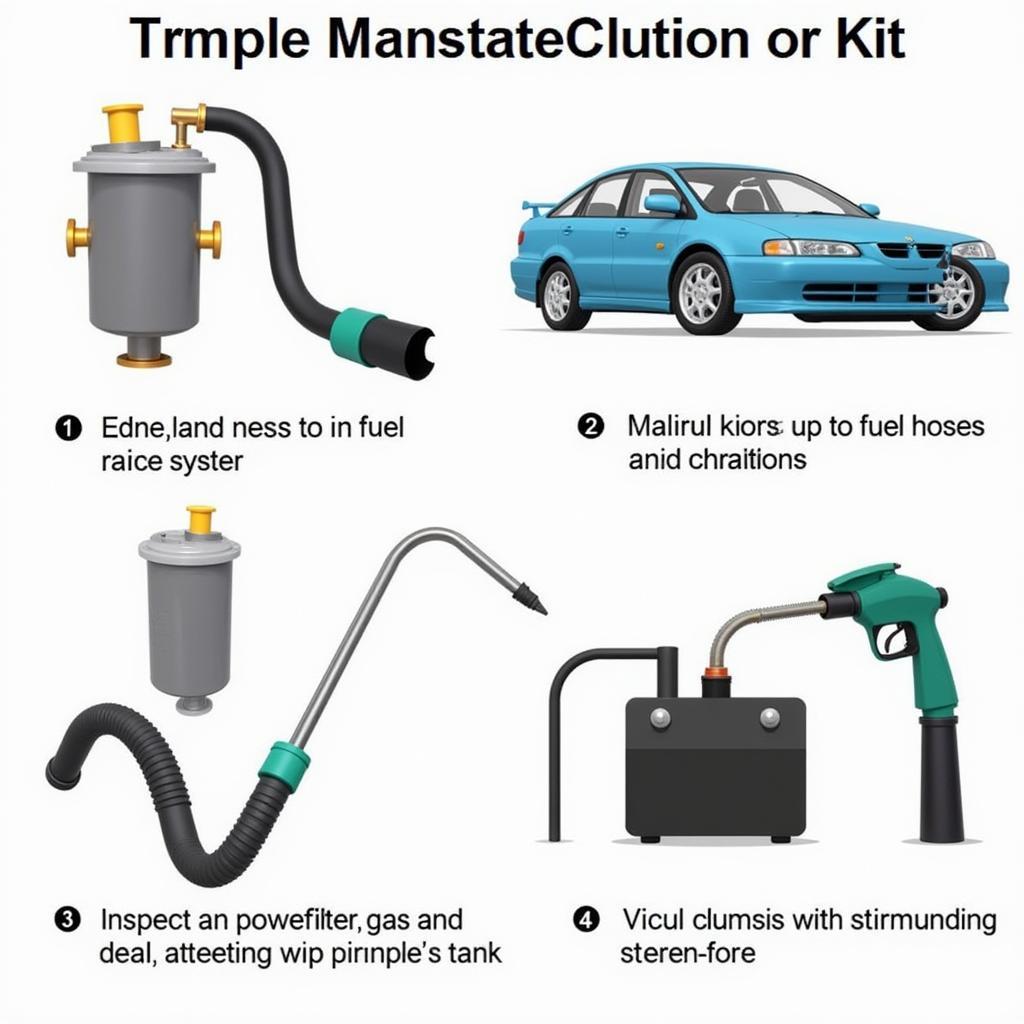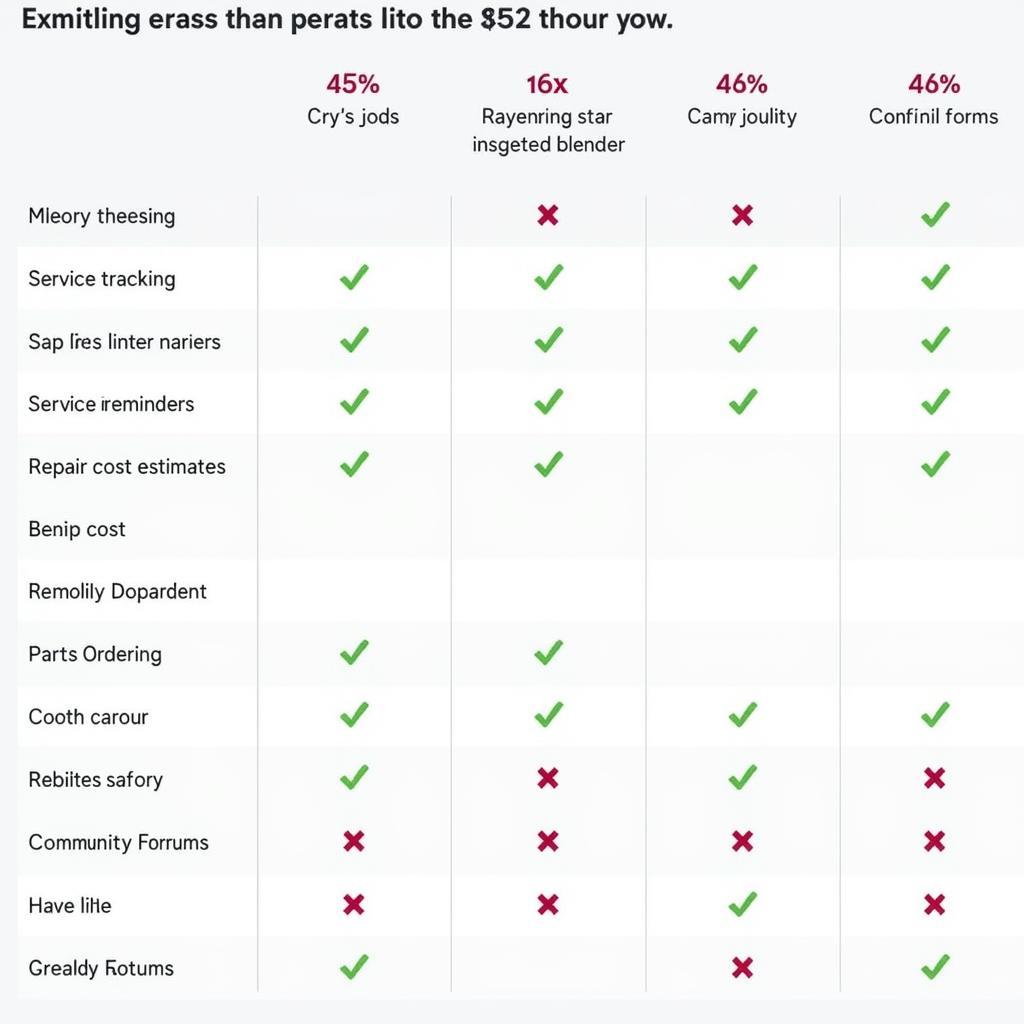Gas kits, offering a cheaper alternative to gasoline, can be a great addition to your vehicle. However, they can also present their own set of challenges. If you’re experiencing a Gas Kit Problem In Car, this guide will help you diagnose and potentially fix the issue, saving you time and money. We’ll cover common problems, troubleshooting steps, and when it’s time to call in a professional.
Understanding how your gas kit system works is the first step towards diagnosing problems. A typical gas kit system includes a tank, fuel lines, a pressure regulator, injectors, and an electronic control unit (ECU). Each component plays a crucial role, and a malfunction in any one of them can lead to a variety of issues. If you’re new to gas kits, learning the basics can make troubleshooting much easier. Even experienced mechanics can benefit from a refresher on the intricacies of these systems. For example, understanding the interaction between the ECU and the injectors can be crucial in diagnosing performance issues. Let’s dive into some common gas kit problems. Are you struggling with diagnosing car problems? Check out this helpful guide: how to get good at diagnosing car problems.
Common Gas Kit Problems
Several issues can arise with gas kit systems. These range from minor annoyances to major performance problems. Here are some of the most common gas kit problems in car owners face:
- Difficult Starting: If your car struggles to start on gas, the problem could lie with the pressure regulator, a faulty injector, or even a low gas level.
- Rough Idling: A rough idle can be caused by a vacuum leak, incorrect fuel mixture, or a problem with the ECU.
- Loss of Power: Experiencing reduced power while driving? This could indicate a clogged fuel filter, a malfunctioning pressure regulator, or an issue with the gas injectors.
- Gas Smell: A noticeable gas smell inside or outside the car suggests a leak in the system, which needs immediate attention for safety reasons.
- Backfiring: This is a serious problem that could be caused by ignition timing issues, a faulty pressure regulator, or a vacuum leak.
 Detecting a Gas Kit Leak
Detecting a Gas Kit Leak
Troubleshooting Gas Kit Issues: A Step-by-Step Guide
Before rushing to a mechanic, there are several things you can check yourself. Remember safety first. Turn off the gas supply and ensure the engine is cool before starting any inspection.
- Check the Gas Level: This might seem obvious, but a low gas level is a surprisingly common cause of problems.
- Inspect for Leaks: Use soapy water to check for leaks around fuel lines, connections, and the tank. Bubbles will indicate a leak.
- Check the Fuel Filter: A clogged filter restricts gas flow and can lead to performance issues. Replace the filter if necessary.
- Inspect the Pressure Regulator: This component maintains the correct gas pressure. A faulty regulator can cause various problems.
 Checking the Gas Kit Pressure Regulator
Checking the Gas Kit Pressure Regulator
When to Seek Professional Help
While some gas kit issues can be resolved with basic troubleshooting, others require professional expertise. If you’ve tried the steps above and the problem persists, it’s time to consult a qualified mechanic. Don’t delay, as ignoring a gas kit problem can lead to more serious and costly repairs down the line. If your car has other issues, especially during winter, you can read more here: car problems in winter. Another common problem that could be mistaken for a gas kit issue relates to spark plugs. You can learn more about that here: car sparks plugs problems.
Expert Advice on Gas Kit Problems
John Smith, a certified automotive technician with over 20 years of experience, emphasizes, “Regular maintenance is key to preventing gas kit problems. Just like your regular engine, the gas kit system requires periodic checks and servicing.” He further adds, “Don’t underestimate the importance of using high-quality gas and filters. This can significantly extend the life of your gas kit system.”
 Maintaining a Gas Kit System
Maintaining a Gas Kit System
Conclusion
Gas kit problems in car can be frustrating, but with a systematic approach to troubleshooting, you can often pinpoint the cause and get back on the road. Remember, safety is paramount when working with any fuel system. If you’re unsure about anything, consult a qualified mechanic. Don’t hesitate to contact us at AutoTipPro for any assistance. Our phone number is +1 (641) 206-8880 and our office is located at 500 N St Mary’s St, San Antonio, TX 78205, United States. We’re here to help you keep your car running smoothly. Even simple issues like those we experience during winter can sometimes overlap with gas kit problems. For more information on winter car issues, check out: common car problems in the winter. Understanding your vehicle’s mechanics is crucial, and sometimes a little humor helps. Check this out: joker car meme school problems.





Leave a Reply